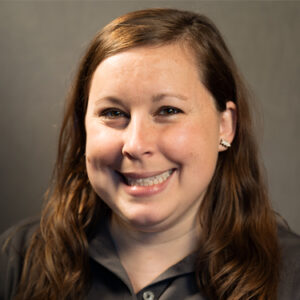Autoimmunity Screening for Kids Study (ASK) is based at the Barbara Davis Center for Childhood Diabetes in Aurora, Colorado. ASK is a general population screening effort to identify children who are likely to get type 1 diabetes (T1D) or who may have undiagnosed celiac disease (CD). T1D and CD are the most common autoimmune diseases in childhood.
The main goal of the ASK program is to identify children with T1D before they are sick with life-threatening diabetic-ketoacidosis, according to Dr. Kimber Simmons, MD, MS, and Cristy Geno, PhD, MPH, of the ASK Program.
In the first general population-based study of mass screening for CD in the United States, the ASK Program developed a more effective method of screening. Because one autoimmune disease is often accompanied with additional autoimmune conditions, simultaneous screening can identify potential diseases at the same time, allowing the opportunity for better clinical care.
Large-Scale Screening in General Population Children for Celiac Disease with a Multiplex Electrochemiluminescence (ECL) Assay provided more information on how the screening effort developed.
Researchers developed a nonradioactive transglutaminase autoantibodies (TGA) assay using electrochemiluminescence (ECL) detection, making screening efforts more streamlined.
- The ECL assay was more sensitive compared with current standard RBA and was able to identify more TGA positivity and to detect TGA earlier in a subset of children.
- The ECL assay determines multi autoantibodies simultaneously in one single well for multiple autoimmune diseases.
An estimated 80% of those with CD are undiagnosed. The small intestine and other organs can be injured when gluten is consumed. This disease occurs in up to 3% of all people and starts in childhood, but often is not diagnosed until later in life.
How the science is applied:
The Barbara Davis Center lab uses the ECL assay to test each sample for four islet antibodies. The positive samples for any of the four autoantibodies are tested again with a Radio Binding Assay (RBA).
Children found to be single autoantibody positive on ECL and RBA, also called Single
High-Affinity, have an increased risk of 50% over 10 years for developing T1D. Children found to have multiple autoantibodies have an increased risk of 70% over 10 years for developing T1D.
Results to Date
ASK has screened 28,549 children with 3.25% (928) found to have one or more autoantibodies for T1D and 2.7% (766) have autoantibodies to CD.
Did you Know? According to ASK researcher Cristy Geno Rasmussen PhD, ASK Program Manager, knowing signs of T1D and being aware is important, even if you are familiar with Diabetes. “Unfortunately, it is not uncommon for families who have children with diabetes to miss the signs of another child in the family developing T1D.”
In addition to general population screening, the A.S.K. Program’s goals include:
- Educating parents and providers on the best ways to monitor children with early
- Offering clinical interventions for affected children that may slow down progression of
- Identify children with undiagnosed CD and help connect them with treatment and
- Raise community awareness about signs and symptoms of T1D and CD and the importance of screening.
Did you know? In research funded by the NIH and others, a medication under review by the FDA delayed progression of clinical Type 1 Diabetes in high-risk participants. The medication is called Teplizumab.
What’s next for A.S.K?
The ASK Program would like to expand to more rural communities, where resources and education about screening for T1D are limited, said Rasmussen. One way to accomplish this is by using infrastructure that is already in place to build a larger screening pool: using hospital infrastructure, help from the American Academy of Pediatrics, Medicaid, and other systems and organizations.
Looking for more resources? Connect with “ASK the Experts”* The program is aimed at supporting health care providers and families of children who screen positive for Type 1 Diabetes associated autoantibodies who reside outside of the ASK Screening program in Colorado. The general screening welcomes national screening, where a lab sample can be shipped back to Barbara Davis for free.
Associated Links: https://www.askhealth.org/experts www.ASKhealth.org [email protected]
Sources: https://www.nejm.org/doi/full/10.1056/nejmoa1902226 https://pubmed.ncbi.nlm.nih.gov/33426098/ https://pubmed.ncbi.nlm.nih.gov/32701732/
*name of program likely to change soon
Guest Article Written by Shannon Ross
Article Clinically reviewed by Marissa Town, RN, BSN, CDCES


